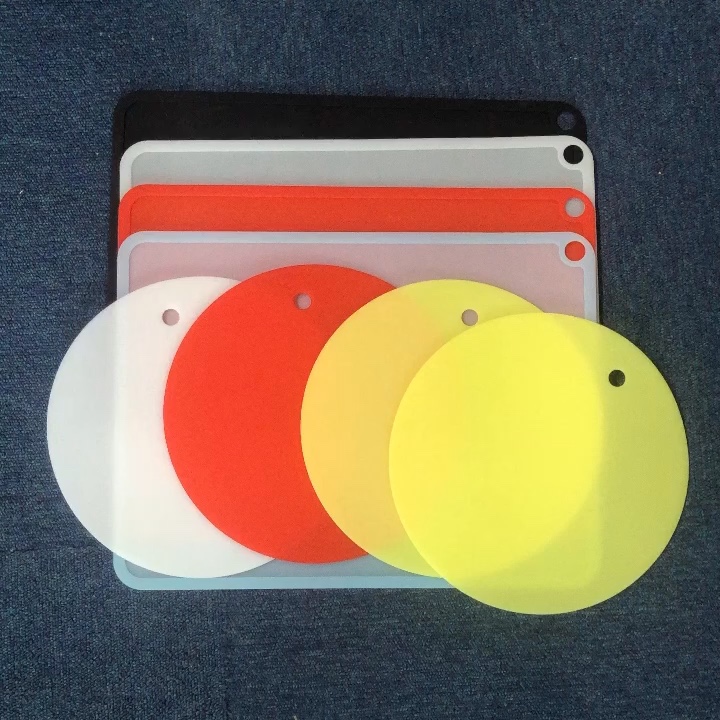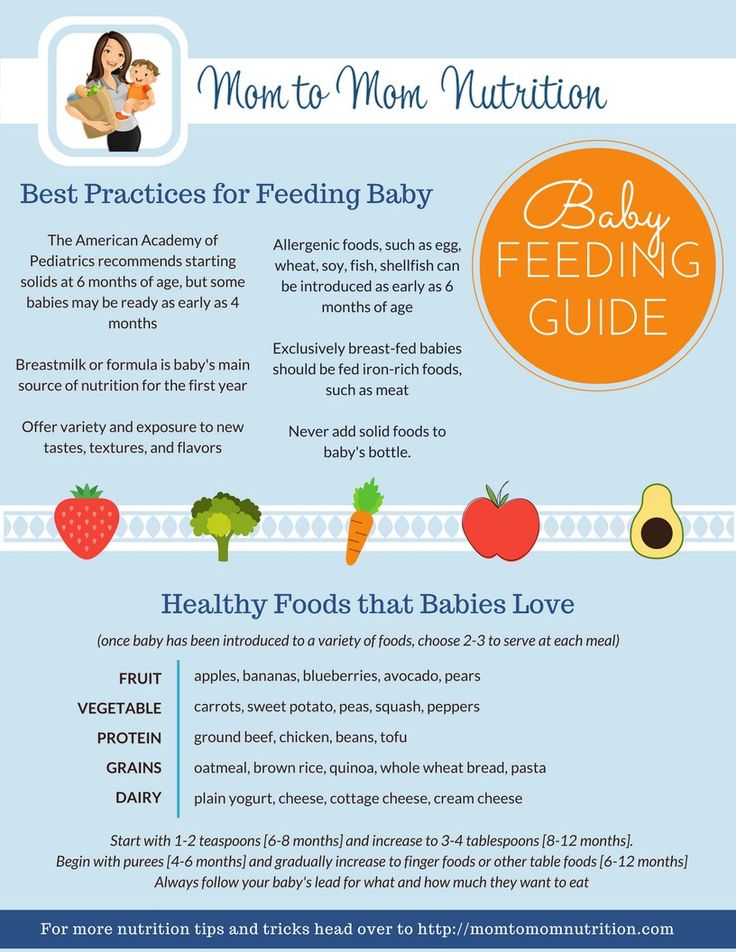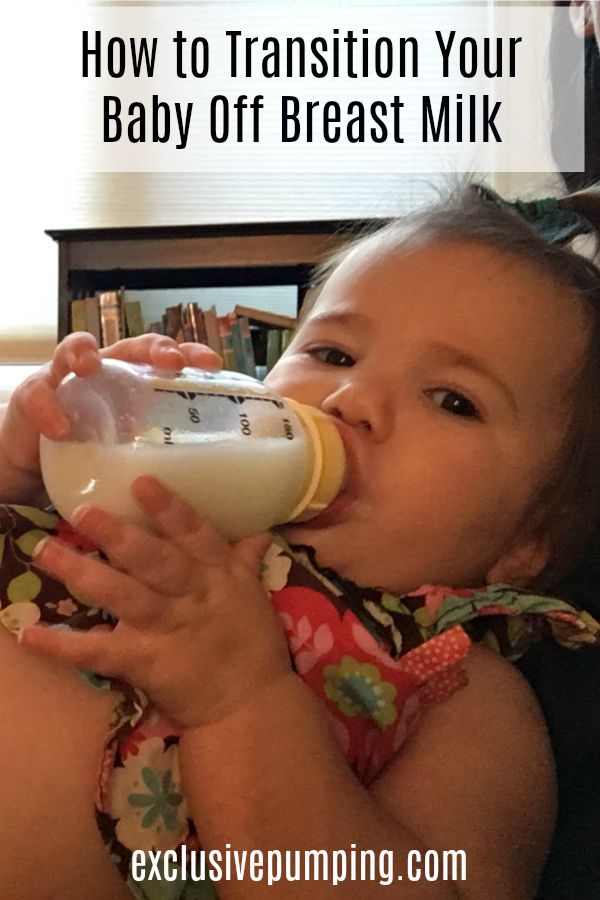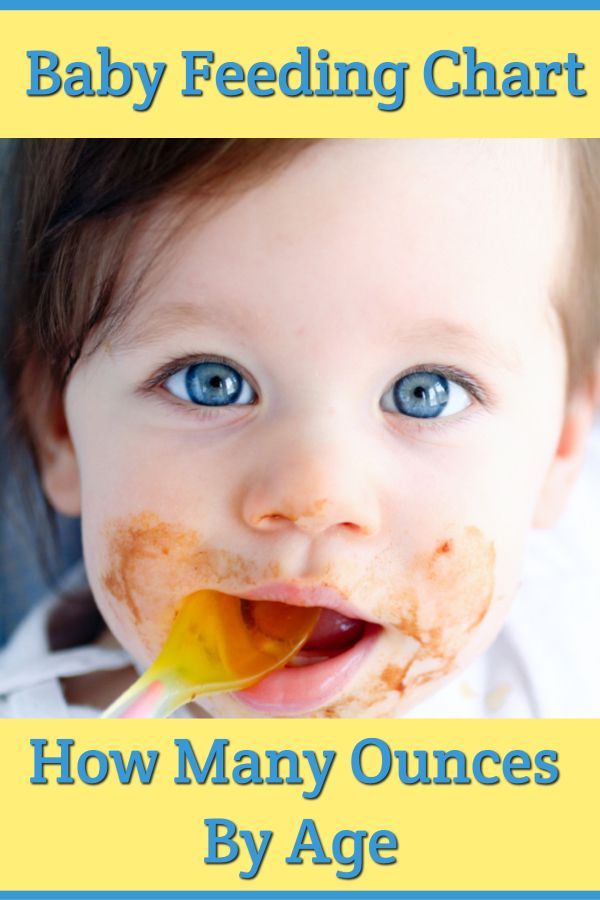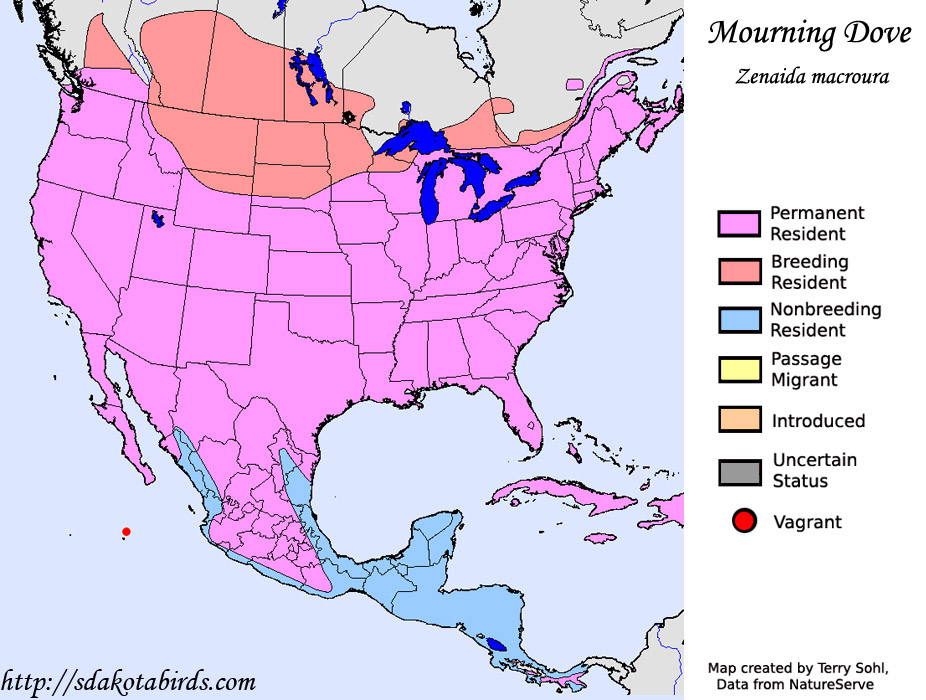Baby tummy gurgling after feed
5 Tricks to Relieve a Gassy Baby
As a new mom, one of the things that surprised me about my babies was how gassy they were. My sweet, little cherubs would toot and grunt and pass gas a lot. At times, it was hard not to laugh. How can such a little baby make such a big noise! The truth is babies pass gas 13-21 times a day, so it’s totally normal.
They could be feeding in an awkward position, eating too fast, eating too much, ingesting too much lactose (found in foremilk), swallowing air from a baby bottle, or they could have a slight intolerance to proteins found in breast milk. Remember, your baby’s digestive system is still developing too. Her intestines are still forming the micro flora she needs to effectively digest foods, even after she’s born.
Other things that can cause gas include normal baby stuff like crying, sucking on a pacifier or simply getting the hiccups. Anything that causes baby to swallow excess air can trigger gas.
When you know what to look for, it’s not hard to tell if she’s in discomfort due to gas. Babies will do involuntary things like grunt or strain. Sometimes they cry out or clench up their bodies. If your baby is happy one minute and crying the next – for no apparent reason – it could be gas pain.
Other tricks mamas use to figure out if baby has gas is listening to her tummy – you can actually hear her stomach gurgling! Or feel her tummy to see if it’s bloated, distended and hard.
If your detective skills lead your to believe your baby is having a bout with painful gas, here are 5 tricks that should help her feel better:
Move those little legsIf your baby is lying on her back, gently move her legs back and forth to imitate riding a bicycle. This exercise helps with intestinal motion and can expel trapped gas. You can also bend her legs and gently push her knees up towards her tummy. If she’s on her tummy, you can help ease into Child’s Pose (just like in yoga) and that motion will have the same effect.
A gentle tummy rubBaby massage is a method nurses use to soothe infants with gas bubbles. It’s called the “I love you” massage. Lie your baby down on her back, then start rubbing her tummy in a circular motion and mimic writing the letters “I,” “L” and “U” with two or three fingers across her belly. By “spelling” the words across your baby’s tummy in a smooth, gentle motion, you’re triggering activity in her abdomen that can help her pass those trapped gas bubbles.
It’s called the “I love you” massage. Lie your baby down on her back, then start rubbing her tummy in a circular motion and mimic writing the letters “I,” “L” and “U” with two or three fingers across her belly. By “spelling” the words across your baby’s tummy in a smooth, gentle motion, you’re triggering activity in her abdomen that can help her pass those trapped gas bubbles.
Of course, the best go-to for any fussy baby is to burp them. Sometimes one good burp will do the trick. It may not happen right away, so burp her, lay her down for a few minutes, then gently pick her up and try again. Keep giving tummy time a try.
Little Remedies® to the rescueIf your magic hands aren’t soothing her, you can try products like Little Remedies® Gripe Water or Little Remedies® Gas Relief Drops. If you think your baby is gassy because she was crying a lot, try Gripe Water, a mixture of water and various herbs. It’s perfect for colicky babies because it’s a gentle herbal supplement, which eases stomach discomfort. Gas Relief Drops soothe unhappy tummies and can even be mixed with formula or water. The simethicone helps breaks up bubbles and gives gas that extra little push to work its way out.
Gas Relief Drops soothe unhappy tummies and can even be mixed with formula or water. The simethicone helps breaks up bubbles and gives gas that extra little push to work its way out.
Try to feed your baby before you start hearing her hungry cries. This can help her eat at a leisurely pace and not gulp down her breast milk or formula too quickly. If you’re a breastfeeding mama and your milk lets down quickly, you may want to unlatch baby for a moment and then re-latch. That can help her manage your milk flow more easily.
Do you have tried and true tricks you use to soothe your gassy baby? Let us know in the comments section on the Boudreaux’s Butt Paste® Facebook page.
Why Is My Baby's Tummy Gurgling and Rumbling?
We’re supported by moms. When you buy through links on our site, As an Amazon Associate, I may earn a commission.
Babies make all sorts of strange noises. Parents expect their baby’s to cry and make little cooing and babbling sounds, but it can be concerning when your baby’s tummy is gurgling and rumbling.
Parents expect their baby’s to cry and make little cooing and babbling sounds, but it can be concerning when your baby’s tummy is gurgling and rumbling.
A baby’s stomach will often make lots of strange sounds and more often than not there is no need to worry.
Table of Contents
- 1 Is It Normal For Baby’s Stomach To Rumble?
- 2 What Causes Stomach Rumbling and Gurgling?
- 2.1 They are hungry
- 2.2 Your baby has gas
- 2.3 They are not quite full
- 2.4 They need to change position
- 2.5 They need to poop
- 2.6 They are having a reaction to something in their milk
- 3 Baby Stomach Making Noises While Sleeping
- 4 How Do You Soothe A Child’s Upset Stomach?
- 4.1 Bicycle legs
- 4.2 Baby massage
- 4.3 Warm bath
- 4.4 Don’t put your baby down straight after feeding
- 4.5 Burp your baby regularly
- 4.6 Use colic drops or gripe water
- 5 The Final Thought
Is It Normal For Baby’s Stomach To Rumble?
Think about your stomach, it’s not exactly silent, is it? You don’t panic every time your stomach grumbles and you shouldn’t be worried if your baby’s stomach is gurgling and rumbling.
It is perfectly normal for your baby’s stomach and digestive system to make all sorts of noises. You will notice the sounds more while your baby is a tiny newborn and their digestive system is still growing and developing.
The only time you would need to be concerned is if your baby was acting as though they were in pain at the same time as their stomach is making a grumbling noise.
Also, if your baby is demonstrating other symptoms linked to their digestive system you may want to take them to an appointment with their pediatrician who will be able to investigate if the sounds and pain are linked.
What Causes Stomach Rumbling and Gurgling?
So, why is your baby’s stomach gurgling and making rumbling sounds? There are lots of reasons why babies get noisy bellies, many of which are just linked to the normal healthy function of their digestive system.
Here is a list of reasons why your baby’s stomach could be rumbling and gurgling:
They are hungry
Let’s talk about the most obvious reason first. Just like yours does when you are hungry, your baby’s stomach is gurgling and rumbling because they need to eat.
Just like yours does when you are hungry, your baby’s stomach is gurgling and rumbling because they need to eat.
This is a problem that is easy to solve! If you start hearing your baby’s stomach rumble, they are probably showing other huger cues and it has been about two or three hours since they last ate, give your baby a feed and the rumbling should stop.
Stomachs rumble when we are hungry because they are empty. When a stomach is empty, the walls will contract and pushes air around the empty space. It is this moving air that causes the grumbling sound, as we fill our stomachs with food the rumbling will stop.
Your baby has gas
When your baby is eating, their stomach can sometimes continue to make strange sounds. The noises you hear are usually not their stomach at all but air and gas moving through their digestive tract.
As your baby drinks their milk, either through nursing or bottle-feeding, gas bubbles can be ingested and get caught or ‘trapped’ in the digestive system.
Sometimes your baby may cry during or after feeds while strange noises are coming from their body.
This gurgling accompanied by signs of discomfort is likely to just be trapped gas. Regularly burping your baby will help to move the trapped gas along, relieving the pain your baby is in.
They are not quite full
If you pick your baby up and you can hear a sloshing sound, chances are their stomach isn’t totally full.
If there is still space in your baby’s tummy when you move them or they move themselves into a different position, the liquid in their stomach will move around in the remaining space, resulting in a sometimes alarming sloshing noise.
Think of a ball full of water, if it’s full the liquid is packed too tightly to make much sound when you move the ball. However, if the ball is only half full there is plenty of space for the water to slosh and move around, making lots of noises as it does so.
Don’t panic if you hear this sloshing sound coming from your child’s stomach, it just means their milk is moving around in their stomach before it continues through their digestive system.
They need to change position
Babies, especially newborns, are not very mobile at all. If you lay a baby down in one position, chances are they are not going to be able to move much until you pick them up and reposition them.
Sometimes, your baby’s stomach gurgling is simply caused because gas and air bubbles that can not move through their intestine easily.
If your baby’s stomach is growling and gurgling, try changing its position. Some positions make it more difficult for gas to escape than others.
If you notice your newborn’s stomach gurgling while they are laying on their back, try putting them into a more upright position. Rest your baby up on your shoulder in an upright position and pat their back, this will encourage any trapped gas to escape and the gurgling sounds should stop.
They need to poop
The digestive system makes weird sounds all the time, at every stage. When we are hungry our stomachs rumble and growl, if we eat too fast our stomachs can gurgle and if we have a lot of liquid in our diet our bellies can make strange sloshing sounds.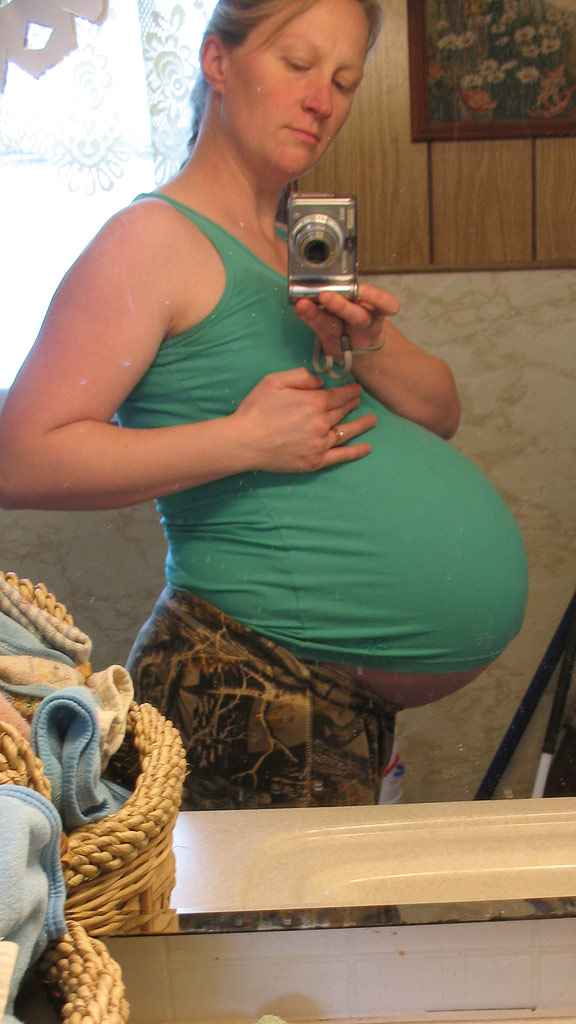
As our food is digested we can hear strange grumbles as gas moves through our system and we all know about the noises that happen when it is time to head to the bathroom. The same goes for babies.
Your baby will release gas just like any adult and sometimes this passing of wind can be surprisingly loud for such a tiny human! Prior to filling their diaper with poop, you may hear your baby-making some grunting sounds and their bowel may be growling too.
They are having a reaction to something in their milk
If your baby is breastfed, stomach sounds could be linked to something you ate that hasn’t quite agreed with their tiny stomach. Just like us, adults can get an upset stomach from time to time, so can babies.
Perhaps you ate something spicy or introduced a completely new flavor or food into your diet and your baby’s stomach is having a hard time processing it.
Sometimes when we eat certain foods it can create more gas or cause digestion to not happen as easily as normal. Anything that interferes with healthy digestion can potentially cause grumbling and growling sounds.
Anything that interferes with healthy digestion can potentially cause grumbling and growling sounds.
If your baby’s stomach is growling and gurgling regularly after you have eaten certain foods, you may want to reduce or eliminate that particular food from your diet, especially if the stomach gurgles are accompanied by signs of discomfort, diarrhea, or vomiting.
If you notice your bottle-fed baby is having sickness and diarrhea, seems upset, uncomfortable, and has a gurgling stomach, you may need to consider changing their formula.
Not all formula milk companies use the same ingredients and if your baby is upset and their stomach gurgles a lot after feeds, they may be sensitive to a certain ingredient in the formula milk.
There are many different brands of formula and with the help of your pediatrician, you will be able to find one that doesn’t upset your baby’s stomach.
Baby Stomach Making Noises While Sleeping
Digestion is a noisy business and the stomach sounds don’t stop just because your baby is asleep. You may hear your baby’s stomach growling and gurgling asleep but this is no reason to be alarmed.
You may hear your baby’s stomach growling and gurgling asleep but this is no reason to be alarmed.
When your newborn baby is asleep on their back, the sounds you hear are likely to just be milk and gas moving through their digestive tract.
Your baby is eating and pooping around the clock. You know this, you are the one in charge of feeding them milk every two hours or so and changing all of those dirty diapers.
As your baby is eating and pooping so regularly, their digestive system is working 24/7 and doesn’t have a break when your baby decides it is time for some shut-eye.
If your baby’s stomach is gurgling while they are asleep, there is no cause for concern if they seem happy and healthy. As long as the digestive system is working you are going to hear some sounds, it is completely normal.
In fact, it is when you start to rarely hear any sound coming from your baby’s stomach that the alarm bells should start ringing. If you notice a reduction or change in the sounds coming from your baby’s tummy then you should contact a pediatrician for advice.
How Do You Soothe A Child’s Upset Stomach?
Sometimes infant stomach noises can be linked to an upset stomach. Your baby may have diarrhea, trapped gas, or colic. There are lots of common digestive issues in infants that can easily be solved at home. Here is a list of some ways you can alleviate your baby’s upset stomach:
Bicycle legs
Laying your baby on their back and moving their legs in a pedaling a bicycle motion can help to move trapped gas and encourage normal digestion.
Baby massage
If your baby’s stomach is gurgling and growling and they seem uncomfortable, you can try giving them a baby massage to ease the discomfort.
Lay your baby on their back, apply some baby oil to your fingers and move them in a clockwise motion around your baby’s abdomen. Massage can encourage gas to move through the digestive tract and has also been found to help with constipation.
Warm bath
A warm bath can help to ease the symptoms of an upset stomach. Warm water is a great remedy for aches and pains and can also help to encourage a bowel movement.
Warm water is a great remedy for aches and pains and can also help to encourage a bowel movement.
Bathing your baby will relax them emotionally but also relax the muscles in their body, making it easier for them to pass gas and it is not uncommon for babies to poop in the tub too.
Don’t put your baby down straight after feeding
If you lay a baby down immediately after feeding you increase the risk of gas and air bubbles getting trapped in their digestive system. Hold your baby upright or laying over your shoulder for as long as possible after feeds.
While your baby is in an upright position they are able to more easily digest their feed and there is less chance of gas getting trapped and causing them pain.
Burp your baby regularly
By regularly winding or burping your baby you will help them to release gas more easily and prevent it from getting stuck inside their body.
Sit your baby up or place them up over your shoulder and gently pat their back until they burp. Make sure you have a muslin cloth ready in case your baby decides to spit up on your shirt too!
Make sure you have a muslin cloth ready in case your baby decides to spit up on your shirt too!
Use colic drops or gripe water
You can purchase gas drops from the drug store that are specifically designed to help relieve the symptoms of colic and trapped gas. Gripe water can also help to move gas through your baby’s body and is safe to give to babies over two weeks of age.
When using any products to help with your baby’s upset stomach, make sure you read the dosage guidelines carefully and seek professional advice if you are unsure if a product is suitable for your baby.
The Final Thought
Baby’s stomachs are noisy even though they are tiny, it is a fact. If you notice your baby’s stomach gurgling or rumbling, this is rarely a reason to worry.
Stomachs make noises when they need food, intestines make noises when they digest food and bowels make noises when your baby is getting ready to fill their diaper. It is completely normal for your newborn’s stomach to make noises.
However, when stomach noises can be heard alongside your baby experiencing discomfort or pain, this may mean your little one has an upset stomach.
If your baby’s stomach noises are causing you concern and they are displaying other symptoms, seek help from a pediatrician who will be able to offer you professional advice.
On the whole, stomach noises are just another sound you will soon get used to hearing from your baby.
Emma Davies
Hi, I'm Emma and I'm a mother to 5 beautiful children aged from 1 to 21 years old- life is hectic! I have learned so much along the way, not only from my own children but also through my professional life. In my positions as a Childminder and Teaching Assistant, I have studied Child Development and The Early Years Developing Practice. I wish to share all of this knowledge and help you with your own parenting journey!
Grumbles in the stomach of a baby: causes and first aid - 2 answers
During the first months after birth, babies experience some discomfort associated with digestion: they growl in the tummy, they writhe from colic and from excessive gas formation.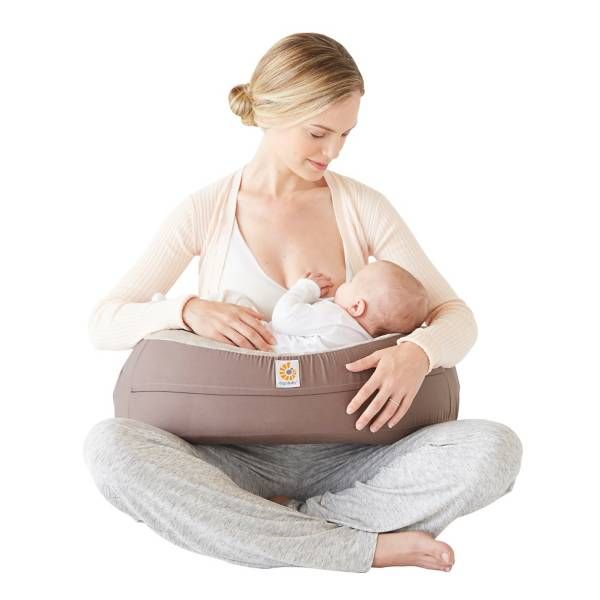 If the mother is breastfeeding the child, and he does not have any developmental abnormalities, he does not undergo medication, there is no allergy, there is no intestinal infection, then we will talk about lactase deficiency, which occurs in almost every baby.
If the mother is breastfeeding the child, and he does not have any developmental abnormalities, he does not undergo medication, there is no allergy, there is no intestinal infection, then we will talk about lactase deficiency, which occurs in almost every baby.
This is the so-called adaptive adaptive reaction of the body, which gets used to food. Milk contains lactose, which contributes to the production of calcium in a child, and also participates in the normalization of the function of the gastrointestinal tract. To digest lactose, a child must have the enzyme “lactase”, but in most cases its formation begins only in the third month, so there is nothing to worry about when the baby rumbles in the stomach during feeding.
What causes lactase deficiency?
The formation of the intestinal mucosa in each child is completed at different times. The sensitivity of the small intestine, absorption activity and the amount of lactose that have to be processed with mother's milk also affect.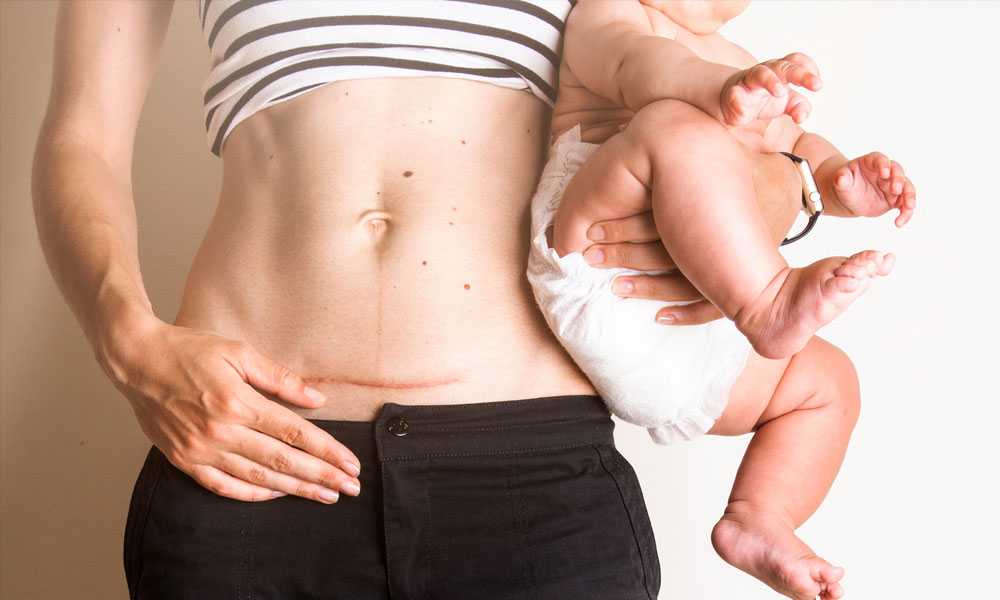 If the baby is transferred to artificial nutrition, then pain and rumbling in the abdomen may increase due to the fact that the mixtures include cow or goat milk, and these are completely different enzymes that are more difficult for the child's body. The baby's stool may deteriorate, it will become frothy, with a sour smell, the tummy will constantly swell, which will change the behavior of the newborn - he will become capricious, his sleep is restless.
If the baby is transferred to artificial nutrition, then pain and rumbling in the abdomen may increase due to the fact that the mixtures include cow or goat milk, and these are completely different enzymes that are more difficult for the child's body. The baby's stool may deteriorate, it will become frothy, with a sour smell, the tummy will constantly swell, which will change the behavior of the newborn - he will become capricious, his sleep is restless.
Colic - the cause of the baby's anxiety Since there are few reasons for the appearance of colic in a newborn, it is necessary to decide how to relieve the child of discomfort. Let's start with nutrition. If the matter is lactase deficiency, then pediatricians advise mothers to express their first milk before feeding, as it is the fattest: it will be easier for the child to digest food. It is better to reduce the interval between feedings than to feed at the same time with one and the other breast.
If the stomach of a newborn who has been placed on partially formula food is bubbling, this may be a reaction to a new product, in particular, to a foreign protein. Among the causes, not related to food, those that give the effect of colic, one can also include the ingress of air into the stomach during prolonged crying or improper bottle feeding.
Among the causes, not related to food, those that give the effect of colic, one can also include the ingress of air into the stomach during prolonged crying or improper bottle feeding.
First aid for colic and rumbling
The child can also "speak": he is calm when he feels good, and cries when it hurts, hot, damp or cold. To relieve colic, you can use a heat compress: for this you need to heat a soft cloth with an iron, attach it to the baby's tummy and press the legs to the chest. The procedure is soothing, especially if the child wants to sleep but cannot.
Baby's pain is diffuse. In order to accurately determine what is bothering him, you need to undress the child, examine the skin, palpate the abdomen (if there is a slight swelling, then the reason is poor digestion).
The baby should be laid out on his stomach more often, do morning exercises with him, the room should be dimly lit, you can turn on quiet melodic music that has a calming effect on the nervous system. In the evening, you can do a light massage on the back and tummy with circular movements clockwise without visible pressure, especially the navel.
In the evening, you can do a light massage on the back and tummy with circular movements clockwise without visible pressure, especially the navel.
You can also rhythmically bend and unbend the legs - this helps food pass into the small intestine faster: three sets of eight times will be enough. The warmth of the mother's body also helps when the child is placed on the mother's stomach with her tummy.
If local remedies do not help, you can consult a pediatrician who will recommend you use BabyCalm, Espumizan, Plantex or Subsimplex colic drops, chamomile tea, and a gas tube (used in exceptional cases when the mother's milk is very fatty, and the stomach does not have enough water for normal digestion).
(copied)
“Why does a child constantly growl in the stomach?”
Health
- Picture
- Dan Prince / Image Source / Getty Images
In our “Ask the Expert” section, reader Valentina asks:
“Daughters are 4 months old. Since birth, her stomach has been constantly growling, especially during feeding. I put my hand on my tummy, and there is a real storm. What it is? Colic? Or some kind of stomach problem? How to help a child? Is it necessary to treat?
Since birth, her stomach has been constantly growling, especially during feeding. I put my hand on my tummy, and there is a real storm. What it is? Colic? Or some kind of stomach problem? How to help a child? Is it necessary to treat?
pediatrician "SM-Clinic. Children»
www.smdoctor.ru/our-doctors/tatarkina-olga-viktorovna/
- Rumbling in the abdomen occurs normally, both in adults and in babies due to peristalsis, i.e. wave-like contraction of the walls of the stomach and intestines. Food that has entered the stomach gradually moves along the gastrointestinal tract and this is accompanied by gurgling, rumbling, bubbling inaudible from the outside.
"Listen" to these sounds is possible only with a stethoscope attached to the stomach. Some time after eating, when the stomach is almost empty, its contractions are audible to the naked ear, as the empty hollow organ amplifies the sounds.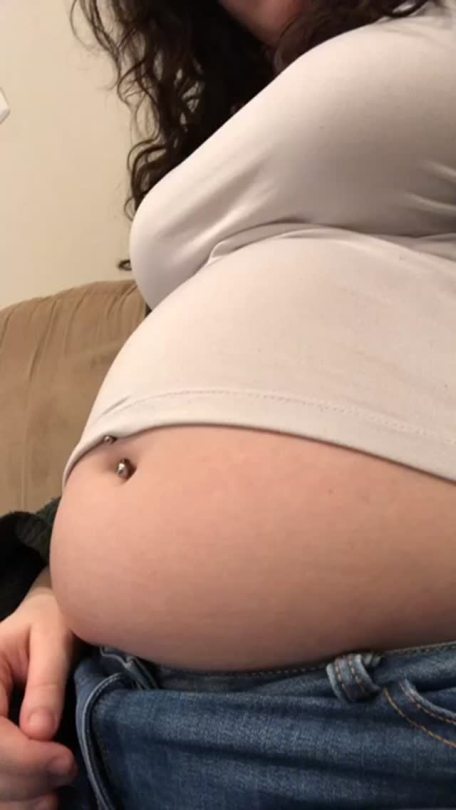 In this case, the rumbling signals that it is time to eat. This is what happens normally.
In this case, the rumbling signals that it is time to eat. This is what happens normally.
But sometimes the rumbling in the stomach can become pronounced, accompanied by bloating . In this case, it is called flatulence - an excessive accumulation of gases in the intestines.
The cause of flatulence in a child of the first year of life may be swallowing air during feeding in case of improper attachment to the breast. In this case, air enters the stomach and then into the intestines.
In a breastfed baby, rumbling in the tummy can also occur when the mother consumes gas-producing foods such as cabbage, legumes, black bread, dried fruits, muffins, sweets, etc. or carbonated drinks.
Rumbling in the stomach can be provoked by a stressful situation when the baby or his mother is nervous.
It has been proven that under stress, the milk of a nursing woman secretes the hormone ghrelin, which, once in the baby's gastrointestinal tract, triggers a whole cascade of negative reactions.
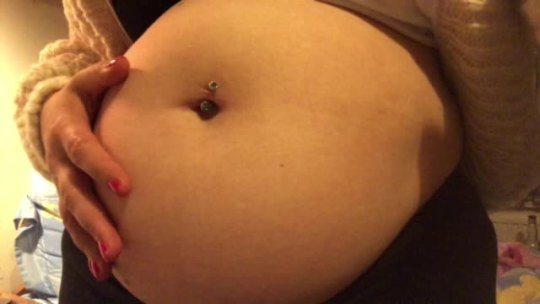
Recently, quite often in babies under one year old, the cause of disruption of the gastrointestinal tract is intolerance to cow's milk proteins . And this applies not only to children on artificial feeding. When a nursing mother consumes dairy and sour-milk products, part of the cow's milk proteins enter her milk and can cause an equally violent reaction in the baby than in children fed with a standard milk formula.
- Photo
- Getty Images
Another cause of rumbling in the baby's stomach can be lactase deficiency - lack of an enzyme (lactase) that breaks down milk sugar (lactose). It must be borne in mind that congenital, so-called primary lactase deficiency is an extremely rare disease. Most often, lactase deficiency is secondary to some other condition.
Often, lactase deficiency accompanies intolerance to cow's milk proteins and disappears when milk proteins are excluded from the mother's diet, if the child is breastfed, or when the baby is transferred to a specialized formula, if he is artificially fed.
Gluten intolerance (grain protein) can also cause gas.
In case of untimely introduction of new complementary foods, and especially the first complementary foods, to children under one year old, rumbling in the stomach may become a reaction.
Parents should keep in mind that babies, especially the first month of life , with increased gas formation, bloating, anxiety, upset stool, along with other symptoms, can also have very serious illnesses. In this case, the well-being of the baby often suffers.
In children older than , an increase in gas formation can be facilitated by too early transfer to the so-called "adult" table, when the child's gastrointestinal waste is not yet ready to cope with new food.
Any stressful situation, including adaptation to attending kindergarten and school t can also cause disruption of the gastrointestinal tract.
The cause of increased gas formation in children 3-5 years old can be the abuse of carbonated drinks, excessive consumption of sweets, muffins, products with coarse fiber, as well as the habit of chewing gum for a long time, a sedentary lifestyle, excess body weight.

